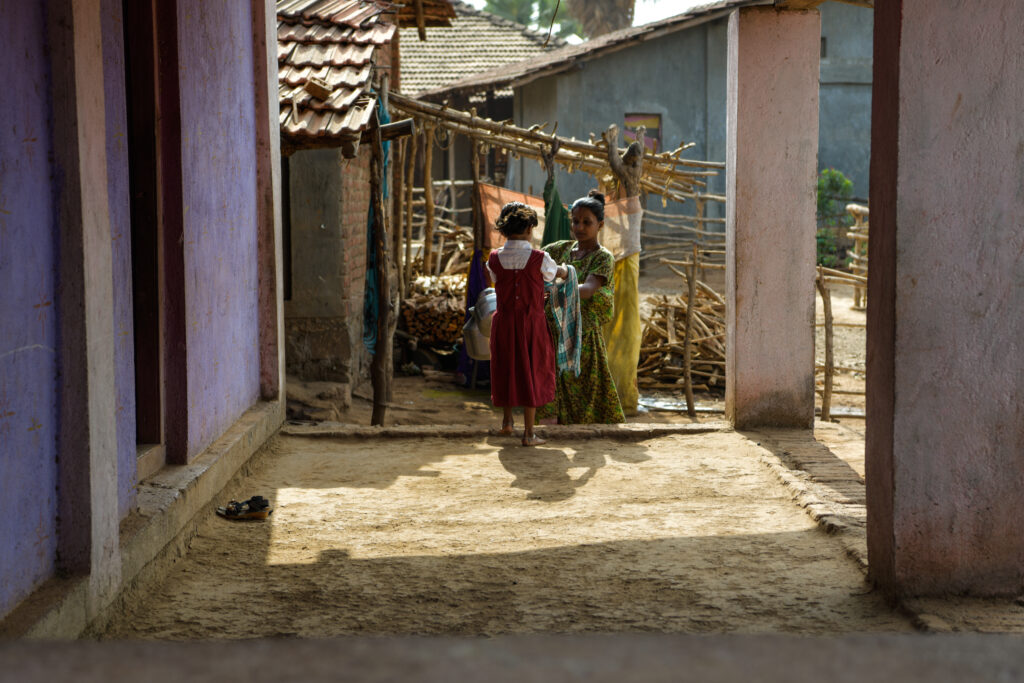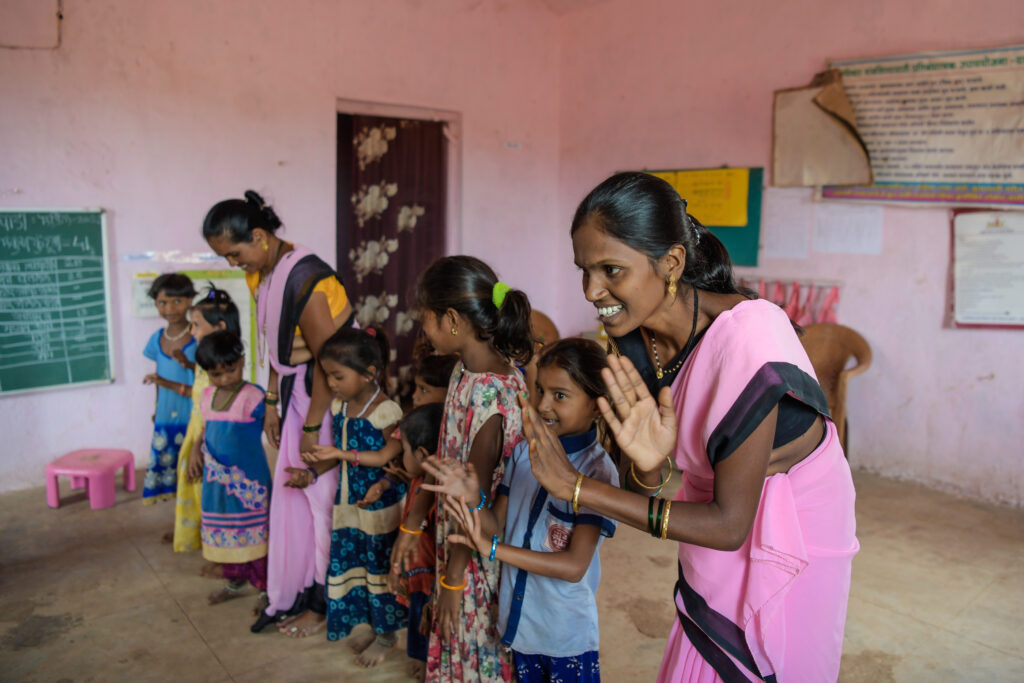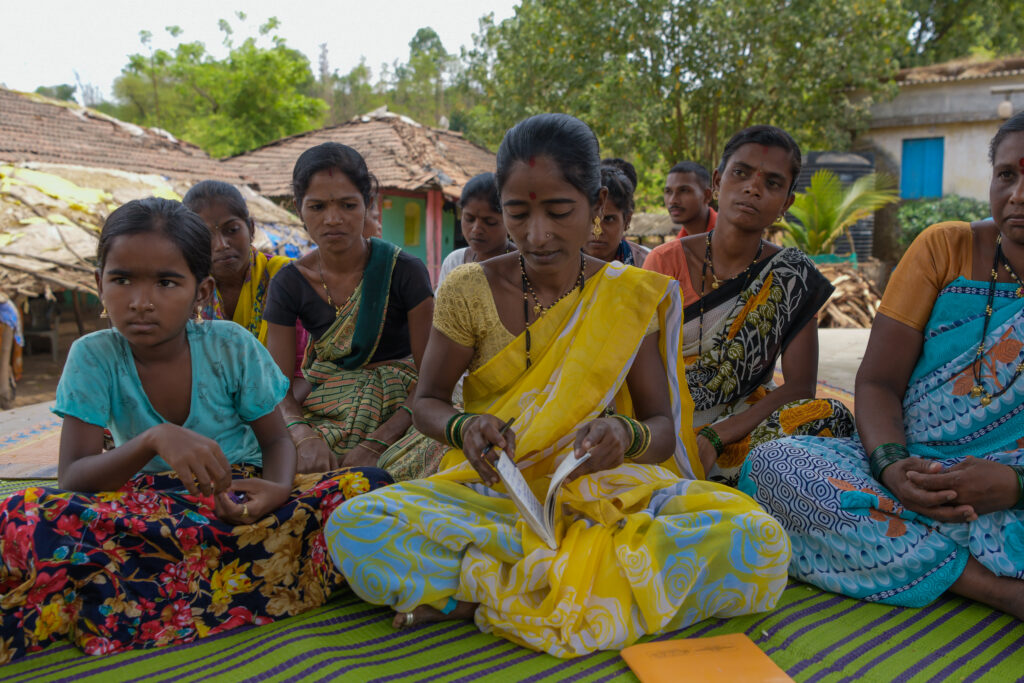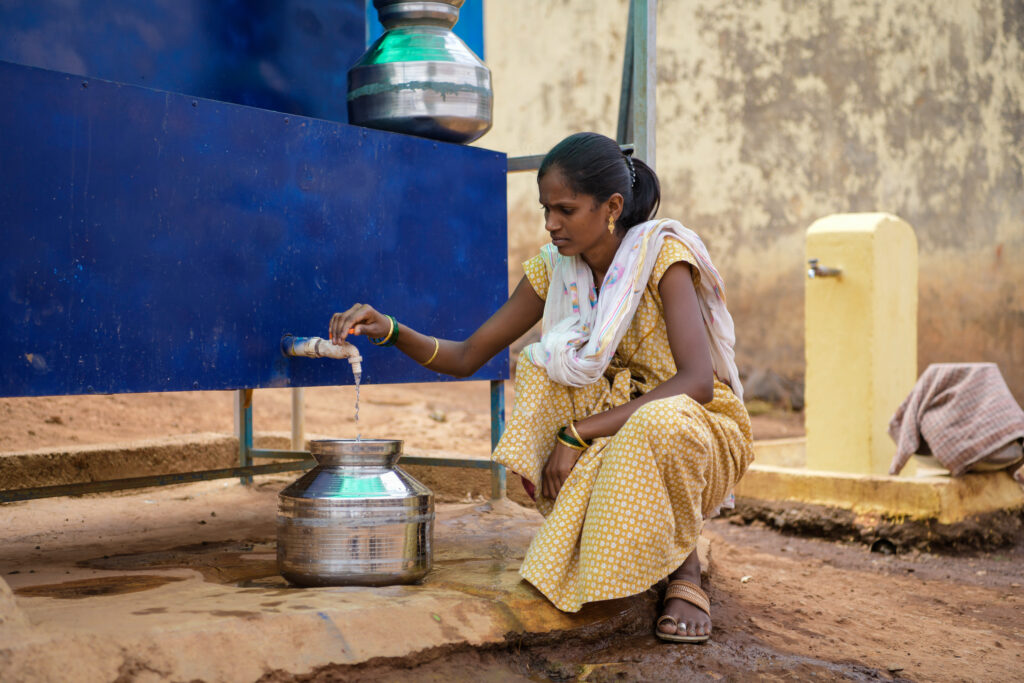Village communities In Palghar District traditionally depend on dug wells for their water needs. The area is hilly, so wells are usually situated in the valleys near the riverside, while the villages are located at a higher altitude. The tremendous burden of collecting water is traditionally done by women. Pranali Mithun Gavita, Lata Noushu Pardhi, and Lalita Ganesh Gauthe all used to climb kilometres, sometimes at an elevation difference of about 200-400 feet to collect water and return home carrying two to three pitchers.
– From two o’clock in the morning till five o’clock it was all about filling water. We used to go in the morning to get two or three [pitchers] and once in the evening, explains Pranali Mithun Gavita.
For several years, the Foundation’s partner in India, Sunlit Future, has been working with the rural development NGO Pragati Pratishthan in Maharashtra to improve water access in these remote communities.
Water and gender Issues from Grundfos Foundation | PDJF on Vimeo.
Water means improved education opportunities
Besides more time – and adequate sleep – the access to water also allows the children from the village to benefit more from their schooling.
Pranali Mithun Gavita, 30 years old, lives in Moulipada Village. She wanted to pursue her education, but she could not finalize her higher secondary education (HSC). Now with water being available at the doorsteps, she has time to focus on giving her daughter better opportunities.
– She knows everything like ABCD, and 1,2,3,4 in English. She writes her name and everything. Previously, I didn’t get much time to pay attention to help with her studies. Now, my husband and I both help get her homework done as much as we can, says Pranali Mithun Gavita.

Hanshika Mithun Gavita, aged 8, daughter of Pranali hands over a towel as her mother is preparing to leave for collecting water. Photo: Avijit Ghosh
According to the Government of Palghar District, the literacy percentage in the area is 61 per cent for men and 46 per cent for women. With water accessible in the village, these numbers can be improved.

Lata Noushu Pardhi, 29, teaches poems while dancing with the students in the Anganwadi (Rural Childcare Centre) in Mohupada village. Photo: Avijit Ghosh
Women’s Self-Help Group
For the women from Himbatpada Village, going to fetch water twice a day usually meant six hours of walking as the spring was an hour and half away from the village by foot.
– Now that water is available at our doorsteps, we are saving a lot of time. And we all feel that we should make good use of that time, says Lalita Ganesh Gauthe.
Lalita Ganesh Gauthe, 33 years old, is the secretary of Himbatpada Village Water Committee. She has a dream to start a sewing machine community project which can help them economically, through a Women’s Self-Help Group.
– We proposed to Pragati Pratishthan that they provide us with a sewing machine training course and financial assistance for buying sewing machines, says Lalita Ganesh Gauthe.

(middle) Manisha Pandurang Humre, aged 45, is the president of the village water committee in Himbatpada and responsible for organizing meetings, collecting money and depositing it into VWC’s bank account. Photo: Avijit Ghosh
With the income from the sewing workshop, the women plan to build an anganwadi (health/childcare centre), as the village doesn’t have one. They also plan to install toilets in all houses in the village to improve overall hygiene and nutrition.
– We could perhaps even help finance education and medical costs for the poorest families’ children or create a small loan scheme so that the whole community may progress together, Lalita Ganesh Gauthe says.
Meet Lalita
Lalita explains how access to water has changed lives in her community and fuelled their hopes and dreams.
Community Hopes and Dreams from Grundfos Foundation | PDJF on Vimeo.
Maharashtra water projects
Maharashtra lies on India’s west coast. The Foundation’s partner Sunlit Future works with Pragati Pratishthan (local NGO) in 10 villages with altogether 537 households, home to 3228 beneficiaries in total.
Together, we are
- Serving about 157 cubic metres of drinking water every day using solar pumping technology
- Saving the women in the ten villages on average 10.4 kilometres per trip previously spent fetching water every day
Find out more about the area’s problems with deforestation and water resource management.


